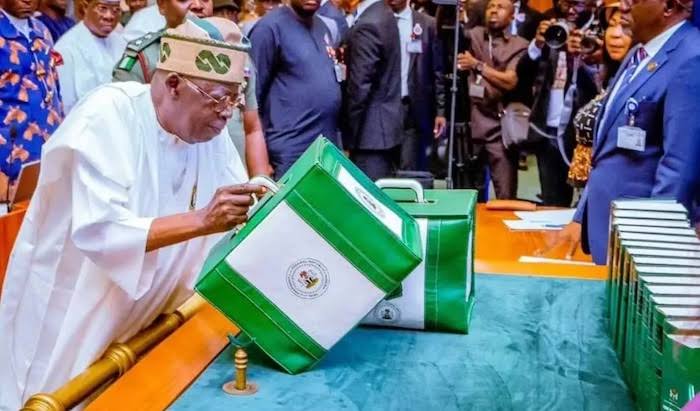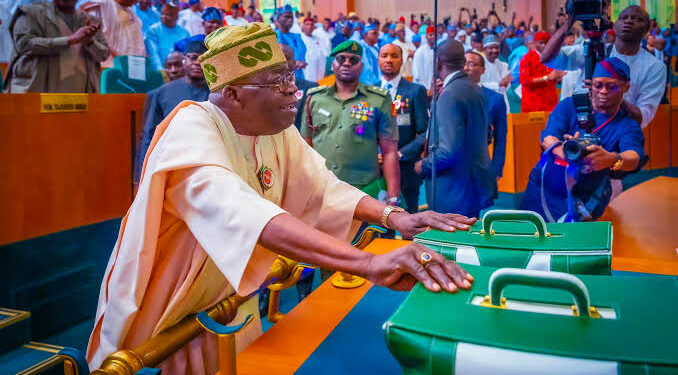Economist Paul Alaje has expressed skepticism over President Bola Tinubu’s projection of a 15% inflation rate for 2025, describing it as “unrealistic” given the current policy environment. Alaje, speaking on Channels Television’s Sunrise Daily, highlighted what he sees as flaws in the administration’s 2025 budget proposal and warned that key economic assumptions may not align with Nigeria’s fiscal realities.
A Bold Target Amid Rising Inflation
In his December 18 presentation to the National Assembly, President Tinubu unveiled a ₦49.7 trillion budget—₦22 trillion higher than the 2024 proposal.
The budget prioritizes defence and security (₦4.91 trillion), infrastructure (₦4.06 trillion), health (₦2.4 trillion), and education (₦3.5 trillion). Among its economic targets is a significant reduction in inflation, from 34.6% in November 2024 to 15% by the end of 2025. Tinubu also expressed optimism about stabilizing the naira, projecting an exchange rate improvement from ₦1,700 to ₦1,500 per dollar.

However, Alaje, using econometric analysis, cast doubt on the feasibility of these goals. “If the policy environment remains unchanged, Nigeria’s inflation rate will likely hover around 30% in 2025,” he said.
The Context: Soaring Inflation Under Tinubu
When Tinubu assumed office in May 2023, Nigeria’s inflation rate stood at 22.41%, according to the National Bureau of Statistics (NBS). By November 2024, this figure had skyrocketed to 34.6%. Economists largely attribute this dramatic increase to Tinubu’s early decisions to remove the petrol subsidy and unify exchange rates policies aimed at stabilizing government finances but with immediate inflationary consequences.
Alaje’s Critique of the Budget
Alaje emphasized the gap between projections and reality, suggesting that key elements of the budget lack the support of robust econometric modeling.
“If the policy environment is sustained as it is, we’ll likely remain in the 30% inflation corridor. A projection of 15% appears more aspirational than realistic,” he said.
While acknowledging some elements of the budget as pragmatic, Alaje questioned whether others had been adequately stress-tested. “Some aspects are realistic, but there are areas where I have serious doubts about feasibility,” he added.
The Bottom Line
Nigeria’s economy is currently in a very volatile state presenting a challenge of balancing economic reforms with inflation control. Thus, Tinubu’s ambitious targets for inflation and currency stability hinges on significant policy shifts, which may not materialize quickly enough to meet 2025 goals. With such huge economy and policy gap to fill, skepticism like Alaje’s reflects broader concerns about whether the administration’s projections are grounded in economic realities or optimistic overreach.
















